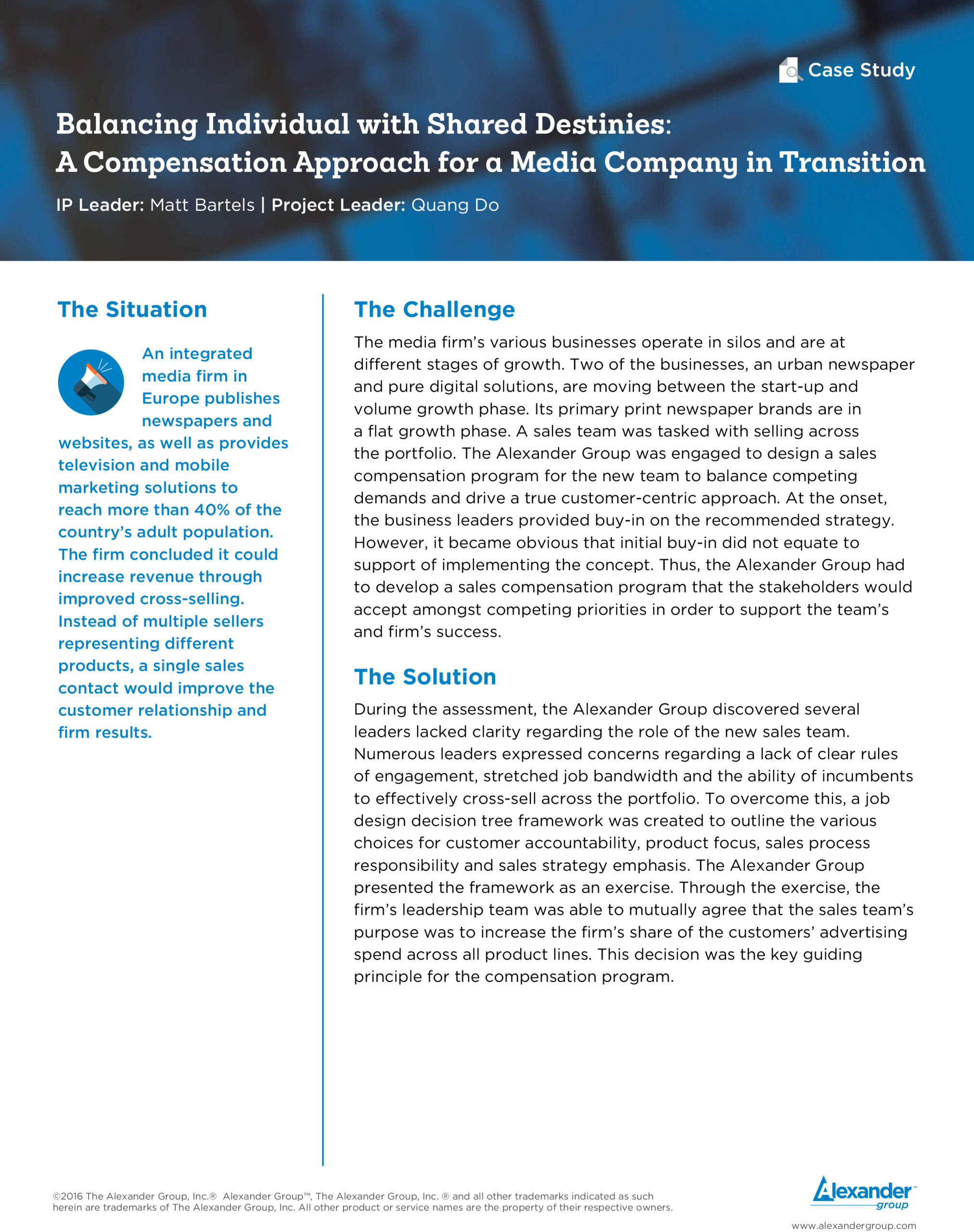A Sales Compensation Approach for a Media Company in Transition
Balancing Individual with Shared Destinies: A Sales Compensation Approach for a Media Company in Transition
 Situation:
Situation:
An integrated media firm in Europe publishes newspapers and websites, as well as provides television and mobile services to reach more than 40% of the country’s adult population. The firm concluded it could increase revenue through improved cross-selling of print and digital solutions. Instead of multiple sellers representing different products, a single sales contact would improve cross-sell results.
Challenge:
The media firm’s various businesses operate in silos and are at different stages of growth. Two of the businesses, an urban newspaper and digital media, are moving between the start-up and volume growth phase. Its primary print newspaper brands are in a flat growth phase. A sales team was tasked with selling across the portfolio. The Alexander Group was engaged to design a sales compensation program for the new role to balance competing demands and drive a true customer-centric approach. At the onset, the business leaders provided buy-in on the recommended strategy. However, it became obvious that buy-in did not equate to belief in the concept. Thus, the Alexander Group had to develop a sales compensation program that the stakeholders would accept amongst competing priorities in order to support the sales team’s success.
Solution:
During the assessment, the Alexander Group discovered several leaders lacked clarity regarding the role of the new sales team. Numerous leaders expressed concerns regarding a lack of clear rules of engagement, stretched job bandwidth and the ability of incumbents to effectively cross-sell across the portfolio of products. To overcome this, a job design decision tree framework was created to outline the various choices for customer accountability, product focus, sales process responsibility and sales strategy emphasis. The Alexander Group presented the framework as an exercise. Through the exercise, the firm’s leadership team was able to mutually agree that the sales team’s purpose was to increase the firm’s share of the customers’ advertising spend across all business lines. This decision was the key guiding principle for the compensation program.
Benefit:
The final plan for the customer-centric sales team included three performance measures: team revenue (50%), individual account revenue (30%) and sales progression milestones (20%). Team revenue received the most focus to satisfy concerns by stakeholders wary of individual performance measures. The plan was designed to pay upside on the team revenue measure tied to a balanced business line hurdle. In order to qualify for full upside, sellers had to achieve above goal performance across individual targets for the three primary businesses. By including sales progression milestones in the plan, it satisfied the project sponsor’s desire to have a way to incentivize market share capture. Furthermore, this flexible measure enabled rewarding of activities, which advanced towards achieving greater share before actual results are recognized.
Download a PDF of this Case Study »
Learn more about Alexander Group’s Media practice.